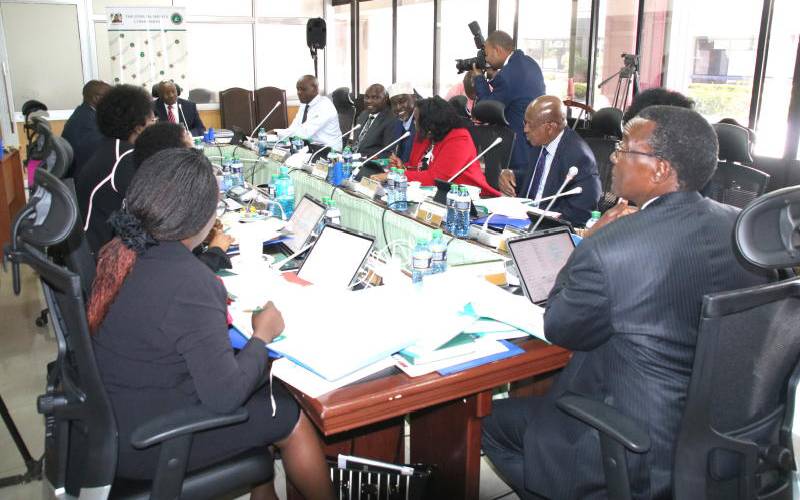×
The Standard e-Paper
Kenya’s Boldest Voice

Journalists were yesterday barred from covering interviews for Court of Appeal judges.
Four judges – Abida Ali Aroni, Aggrey Muchelule, Mumbi Ngugi and Mbogoli Msagha appeared for interviews to fill vacant positions in the appellate court. Thirty five candidates are lined up for interviews which will end on July 1.